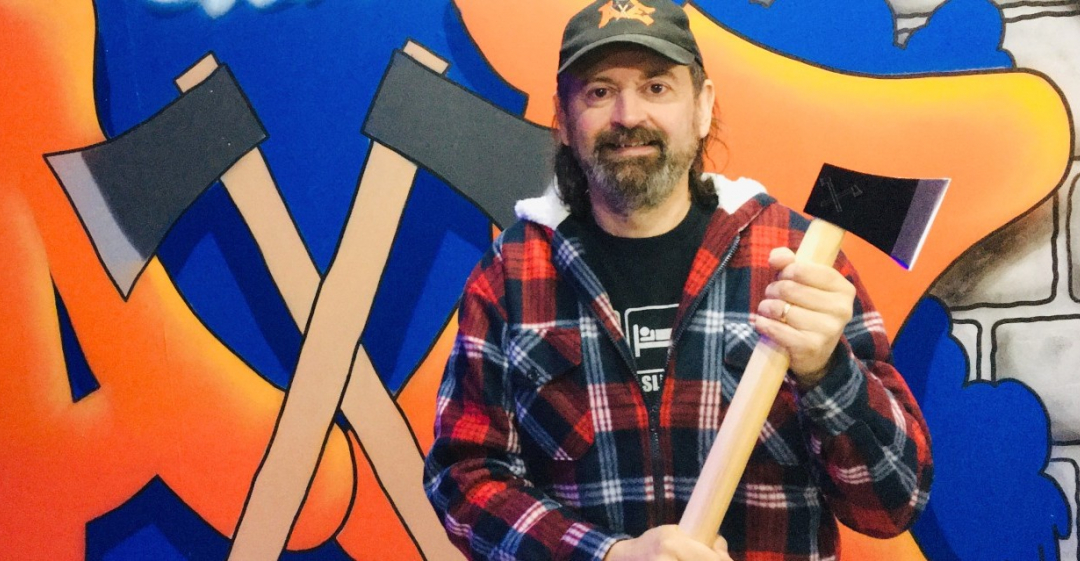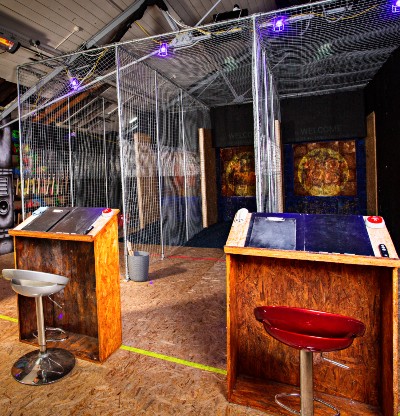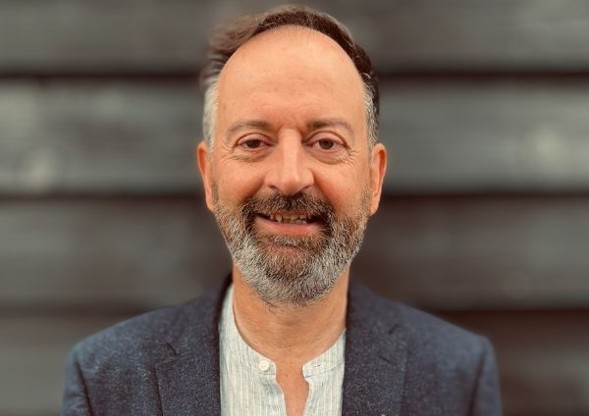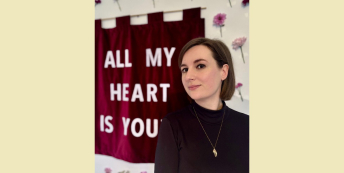“I wanted to be much more hands-on in all aspects of a business.”

Newly Updated
What work were you doing previously?
I was an IT consultant.
Specifically, I coached and trained management and technical teams in agile software development techniques.
What are you doing now?
I'm now running Eat Sleep Axe, an urban axe throwing business, full-time.
Why did you change?
The Covid pandemic gave me time to reflect.
Although my work simply went online, I began to feel that I’d like to take a break from working with big businesses and run a small local business.
When was the moment you decided to make the change?
At the end of the first year of the pandemic, due to the impact of Covid, the bank I was working with in Brussels ended my contract early.
I decided not to look for a new consultancy position and, instead, registered Eat Sleep Axe Ltd on January 1st. It was a sort of ‘New Year resolution’ to pursue something different that year.
How did you choose your new career?
As an axe throwing enthusiast, I could see the potential for the growth of the sport of urban axe throwing in the UK.
I'd visited UK axe throwing venues and believed I could provide a much better axe throwing experience than many were offering.
Are you happy with the change?
Very happy.
The business has proved very popular and I enjoy the variety of the work.
I’ve also been able to spend more time with my family, with my son and daughter both working in the business too.
What do you miss and what don't you miss?
I miss the travel I had with my previous role.
My consultancy work took me to places such as Canada, Egypt, Lebanon, Germany, Belgium, and Jordan, as well as all over the UK.
I don’t miss the bureaucracy of working in large tech organisations.
It was very common to be working in businesses where the management were theoretically asking me to help bring change, but then put up many barriers to avoid making those changes.
How did you go about making the shift?
The end of my Brussels contract provided an overnight shift from full-time consultant to full-time start-up founder.
I spent about nine months living off my savings, researching and experimenting, before opening the axe throwing business to the public.
How did you develop (or transfer) the skills you needed for your new role?
I'd developed good coaching skills previously, helping technical teams to work well together, so coaching people to throw axes was an easy transition.
I also had good business development skills, from working with larger organisations, and enjoyed the challenge of applying those to a small business.
I needed to improve my own axe throwing, through a combination of practice and learning from other coaches.
What didn’t go well? What wrong turns did you take?
Not so much a wrong turn, but to start with I'd painted targets to throw at.
I was aware of projected targets, where you can project a variety of games on the wooden target to throw at. I didn’t want to invest in them until I was sure the business was going to be successful.
After a few months it was clear it was, and I installed the projected targets, which were much more popular.
How did you handle your finances to make your shift possible?
I was fortunate to have been on a good income, and with the Covid lockdowns, I saved a lot from working from home and not having many expenses.
These savings were sufficient to get the business running in the first year, and I've been taking a wage from the business since.
What was the most difficult thing about changing?
The initial insecurity of whether the business would pay for itself, although fortunately that didn’t last long.
What help did you get? 
I got a lot of advice from other axe throwing enthusiasts and business owners.
The sport is still fairly niche and people are generally happy to support its growth.
What resources would you recommend to others?
I’m a big fan of developing the business step by step, and found these books very helpful: The Lean Startup by Eric Ries, and The Startup Owner’s Manual by Steve Blank & Bob Dorf.
What have you learnt in the process?
I’ve learned a lot of practical skills I didn’t have before, in axe throwing, maintenance etc, along with marketing techniques.
I’ve also learned that I enjoy the small-business environment where I’m much more hands-on in all aspects of the business.
What do you wish you'd done differently?
Maybe started a few years earlier!
What would you advise others to do in the same situation?
I took a bit of a leap of faith in quitting one career overnight to pursue another one.
I think you could build a business step by step, while working your ‘day job’ if needed.
However, if you have the opportunity to focus full-time in establishing the business from the start, I think it’s far less stressful.
We caught up with Pete recently to see how his shift was working out, roughly a year and a half on. Here's what he's been up to, and the biggest lessons he's learned.

What's changed for you in your career since we first published your story?
At the end of 2023, I handed over the full-time management of Eat Sleep Axe and started a new business, advising people on how to start their own axe throwing business.
I’m still a director of the parent company that owns Eat Sleep Axe, but I now provide consultancy through Axe Throwing Consultancy Ltd.
I'm also collating the knowledge I've gathered about the axe throwing business and will be publishing it on the website TheAxeThrower.com next month.
How do you feel about your work now?
I'm still thoroughly enjoying being actively involved in running a small business, but I also now get to travel more, which I love.
I've visited axe throwing venues in France, Spain, as well as all across the UK. I'll be visiting venues in Canada and the USA in the autumn.
What challenges have you come up against since making your shift, and how exactly have you dealt with them?
The main challenge has been getting a good internet connection!
I sold my house in 2022 and moved into a motorhome full-time. The impetus for that was greater flexibility to move around, so I can now work pretty much anywhere.
A lot of my work is online and finding a consistent, fast WiFi proved difficult. I now have a WiFi booster, which has made a big improvement.
How is the financial side of things panning out, and is this what you'd expected?
I am earning less than I did as an IT consultant, which is what I'd expected.
However, I don't need a higher income because I've reduced my outgoings considerably.
I could take a dividend from Eat Sleep Axe to supplement my income, but I don't need it, and I want to reinvest profit into the business at the moment.
What have you learned, since making your shift?
The main thing is probably that I'd rather enjoy the freedom of being my own boss, than earn more but be part of the corporate grind.
To find out more about Pete's work, visit https://axethrowingconsultancy.com
What lessons could you take from Pete's story to use in your own career change? Let us know in the comments below.



